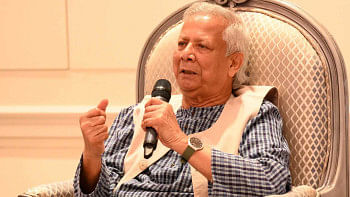Protection of culture or protectionism?
UPON a writ petition, the High Court Division (HCD) of the Supreme Court has asked the government to explain why three Indian satellite channels would not be barred from being telecast in Bangladesh. What the HCD would ultimately do in this legal battle is purely a matter of law to be settled by the HCD and it is not in any way the intention of this column to comment on the legal merits of the petition pending before the HCD. However, those who seek to block some of the Indian satellite channels and movies of not just India but other neighbouring countries in the Indian sub-continent cry for the so-called 'protection of our culture and values.' This write up is a comment on the parochial and protectionist arguments that these groups raise.
Generally, people seek to shield themselves from competition when they are not confident of their ability to survive in a more open environment. Quality dramatists and producers such as Humayun Ahmed and Atiqul Haque Chowdhury never had to fret about, let alone cry for, shielding their works from overseas competition, rather they enjoyed very strong following in West Bengal. Humayun Ahmed even unequivocally derided the cry of the movie industry for protection from competition. It is quite interesting that while there are many Indian channels, generally the barrage of attacks is hurled at only some of them allegedly because their programmes 'threaten our culture.' Perhaps the fact is that they are more popular and have a large viewership in this country and cause some headaches for some in this country.
Interestingly, the Import Policy Order, 2012-2015, provides that: “Cinematograph film (exposed) in English language without sub-title and in other languages except sub-continental languages with sub-title in Bangla or in English shall be permissible for import.” This restriction on movies in sub-continental languages can be based on commercial or cultural considerations. If it is based on cultural considerations, it is incomprehensible that movies in the Indian sub-continental languages would threaten our culture but other foreign movies would not. If anything, because of some affinity with the culture among the neighbouring countries, it would seem that they would be more attuned to our cultural and moral values. This would imply that this restriction has more to do with commercial factors and less with cultural values. Even in commercial terms, despite enjoying protection for decades, there is little evidence to suggest that the shielded movie industry of Bangladesh has matured or even progressed in comparative terms.
The cultural warriors seeking to block Indian satellite channels from being telecast forget, or are wilfully oblivious of, the fact that if the door is shut for some channels, this would not necessarily mean bigger viewership of comparable programmes of local satellite channels. In this competitive world, if some overseas satellite channels are banned simply because some of our compatriots do not like them or that the programmes telecast in those channels allegedly influence some immature viewers to indulge in harmful or absurd activities, other overseas satellite channels may fill the void and the local channels may remain where they are.
While the merit of the efforts to block Indian satellite channels is being questioned here, the artistic merit or entertainment appeal of the programmes that these channels telecast is not being lauded. Indeed, like many of my compatriots, the kind of soap operas and many other entertainment programmes these channels typically telecast is far from what I would crave to watch. But who are we to dismiss the taste of millions? Or even more importantly what right does the government possess to harshly tell a very large segment of our adult population what to watch and what not to watch unless what they do choose for their viewing is patently immoral?
It was not too long ago when many Bengali speakers in India were striving to watch our dramas and soap operas. It would serve them if the entertainment industry insiders in this country could ask themselves some difficult questions that while the quality of our soap operas is in no way any worse than that of India's why and how have the Indian channels effectively taken away a big chunk of Bangladeshi viewership? What has made a segment of our entertainment industry feel so vulnerable? The answer probably lies in the distribution and marketing policies of many of the products of the industry.
Another argument put forward in favour of blocking Indian channels is about ensuring reciprocity, because Bangladeshi channels are effectively blocked in India, we should do the same for Indian channels. Obviously, this is intuitively appealing but in this case this response may not be very effective, and it is an open question as to what extent a much bigger market of the Indian channels would suffer from a Bangladeshi ban. Even if it does, it would weaken the moral force of the arguments of a very large segment of Bangladeshi entrepreneurs that they face undue market access barriers in India. It seems that a better step for the entrainment industry would be to collectively lobby for effective telecast rights in India for Bangladeshi satellite channels.
The writer is an Assistant Professor, School of Law, BRAC University.

 For all latest news, follow The Daily Star's Google News channel.
For all latest news, follow The Daily Star's Google News channel. 



Comments